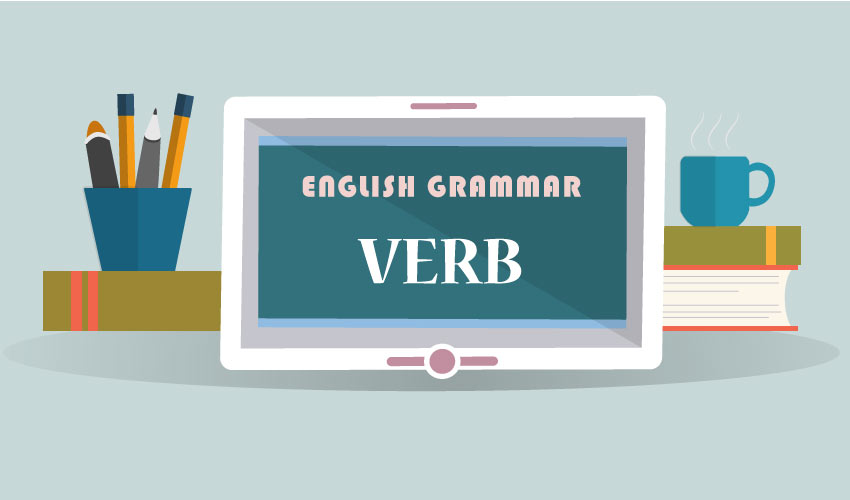
যে শব্দ দ্বারা কোন প্রকার কাজ করা/হওয়া বুঝায় তাকেই Verb বলে। যেমন, go, eat, sleep, buy, sell, walk, run, see, play, write, give etc.
Verb কে ইংরেজি sentence এর হৃদয় বলা হয়। Verb ছাড়া কোন sentence গঠন করা সম্ভব নয়।
The verb is an important part of speech. Without the verb, no sentence can be formed. It shows a physical or mental action.
Example:
There are many types of verbs. Some are discussed below:
Finite Verb বাক্যের প্রধান verb হতে পারে এবং বাক্য গঠনের ক্ষেত্রে subject এর number এবং person এর সাহায্যে এই verb এর form নির্ধারণ করা হয়।
A Finite verb can come as the main verb in a sentence, and it changes according to the tenses of the action and the number and person of the subject.
Example: Afroza works in a bank.
Non-finite verb কখনো main verb হতে পারে না। Non-finite verb বাক্যে সাধারণত adjective অথবা adverb হিসেবে কাজ করে কিন্তু verb হিসেবে নয়।
Non-finite verbs can’t be main verbs.
Example: Coming home, I saw the man running away.
There are three types of non-finite verbs.
Action verb, Subject এর কাজকে বর্ণনা করে। যেকোন কাজকেই action verb হিসেবে বিবেচনা করা যায়।
Action verbs express actions. They complete the sentence and describe the subject’s action.
Example:
Action verbs are of two types:
Transitive verb সবসময় একটি direct object দাবি করে। Direct object না আসলে যে বাক্যটি অসুম্পূর্ন মনে হয়, সেই বাক্যে transitive verb ব্যবহৃত হয়।
Example:
Intransitive verb এর কোন object প্রয়োজন হয় না। তারা নিজে নিজেই বাক্য সম্পূর্ণ করতে পারে।
They don’t have a direct object.
Example:
Linking verb সাধারণত ওই সকল verb কে বুঝায় যেগুলো কোন কাজ সম্পন্ন করে না বরং subject এর সাথে বাক্যের বাকি অংশের যোগাযোগ স্থাপন করে। সাধারণত, Be verb গুলো যখন main verb হিসেবে sentence এ ব্যবহৃত হয় তখন সেগুলোকে Linking Verbs বলা যায়।
Linking Verbs can behave both either main verbs or auxiliary verbs. They do not refer to actions, but represent a state of being, need, opinion, desire or senses. For example, be verbs (am, is, are, was, were, have, has, had….) are the example of no-action verbs. Smell, look, taste, sound, etc. are also called no-action verbs.
Example:
Auxiliary Verb হচ্ছে সাহায্যকারী verb। তারা present participle এবং past participle কে বাক্যে verb হিসেবে কাজ করতে সাহায্য করে। তাদের নিজস্ব কোন সম্পূর্ণ অর্থ না থাকলেও ব্যাকরণগত দিক থেকে বাক্যের গঠণ নির্মানে তাদের গুরুত্বপূর্ণ ভূমিকা রয়েছে।
Auxiliary verbs are also called helping verbs. It helps another verb to form its mood, voice, tense, etc. They don’t have any meaning on their own, but they are very important to make the grammatical structure of the sentences. They help the main verbs.
They are two types:
Have, Do, and Be are known as primary auxiliaries.
Have
Have, has, had, having, had not .
Example: He has bought a new car. (এখানে has একটি auxiliary verb)
Do
Do, does, done, to do, did, did not, does not, etc.
Example: He does not keep his work for tomorrow.
Be
Am, is, are, was, were, be, to be, been, was not, were not, etc.
Example: He is watching the tournament.
Modal Auxiliary সাধারণত মুল verb এর অর্থকে প্রভাবিত করে কিন্তু তারাও সাহায্যকারী verb হিসেবেই বাক্যে ব্যবহৃত হয়।
A modal auxiliary modifies the meaning of the main verb in some way. Shall, should, can, could, may, might, ought, ought to, will, would, must, etc. are known as modal auxiliary verbs.
Example: